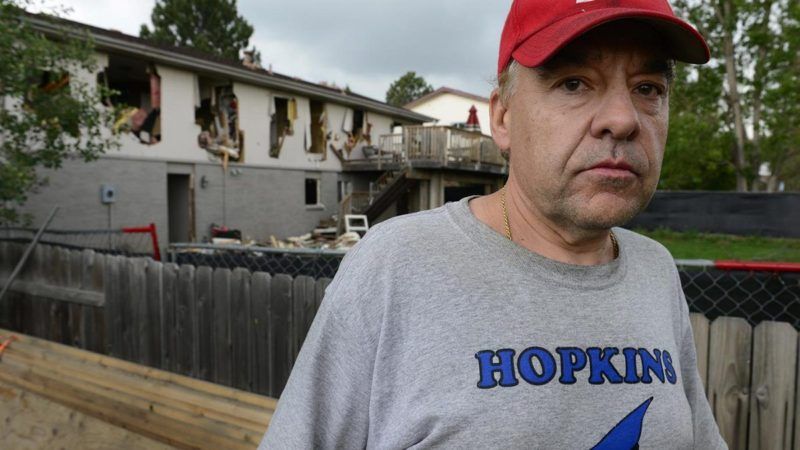A SWAT Team Blew Up This Family's House While Chasing a Shoplifter. The Supreme Court Won't Hear the Case.
And no, it wasn't the shoplifter's home.

Five years ago, police officers in Greenwood Village, Colorado, destroyed a private residence while pursuing a suspected shoplifter who had broken in and barricaded himself inside. Last year a federal court denied the homeowners any compensation for those damages, even though they had no connection to the theft and did not willingly allow the fugitive into their house. This morning the Supreme Court announced that it will not hear the case.
Over the course of June 3 and 4, 2015, a SWAT team deployed a series of flash bang grenades, tear gas, 40 mm rounds, two Bearcat armored vehicles, and breaching rams against the home of Leo, Alfonsina, and John Lech. The Lechs had to demolish the house, which was worth $580,000. The city gave them $5,000.
This despite the fact that the Takings Clause of the 5th Amendment is supposed to protect citizens from having their property taken or destroyed by the government without being justly compensated for that loss.
"The simple rule of the Constitution is that the government cannot arbitrarily single out private citizens to bear the costs of something that should rightly be the burden of society as a whole," said attorney Jeffrey Redfern of the Institute for Justice, the public interest law firm that represented the Lechs, in a statement. "If the government requires a piece of property to be destroyed, then the government should pay for it—and that's just as true regardless of whether the people doing the destroying are the local school board or the local police."
The U.S. Court of Appeals for the 10th Circuit disagreed, ruling in October that the cops acted within their "police power" when they ravaged the home in an attempt to coax the suspect, who was armed with a handgun, to surrender.
As Jay Stooksbury wrote in the December 2017 issue of Reason, the ordeal financially upended the Lech family's life. Leo Lech had to take out a $390,000 loan after having to tear down what remained of the home. As of October of last year, he had incurred an additional $28,000 in attorney's fees.
The death of George Floyd, an unarmed man killed by a Minneapolis cop, has driven new life into the conversation around police reform—not just as it relates to excessive force, but as it pertains to ensuring the public has recourse against officers who infringe on their rights. The Supreme Court recently refused to hear several cases on qualified immunity, the legal doctrine that allows public officials to violate your rights without fear of federal civil rights lawsuits, so long as the way those rights were trampled has not been outlined almost identically in a previous court precedent.
The Lech case is a microcosm for several discussions around what needs to change. There was the intensely-militarized presence: Why does apprehending a petty thief necessitate grenades and armored vehicles? There was a rather plain violation of the homeowners' constitutional rights. And there was—and is—the lack of accountability, which the Lechs no longer have hope of seeing rectified.



Show Comments (112)